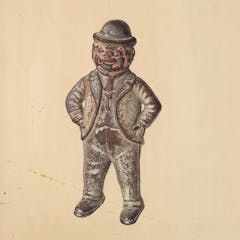
Articles on Words
Displaying 1 - 20 of 61 articles

Ever wondered where everyday things got their names? Or where words come from? Language is a powerful thing, creating new words all the time.

Why do so many Americans share the concern that success and integrity are in conflict, as if one comes at the expense of the other?

Innovations in AI seem to be spurring interest in what is or isn’t real, accurate and human.

Most people can draw from tens of thousands of words in their memory within milliseconds. Studying this process can improve language disorder treatment and appreciation of the gift of communication.

Gendered words can be offensive in certain contexts – it’s all in what’s being signaled, according to a sociolinguist

Music creates powerful memories and emotional connections in our brains.

Similar techniques used to identify criminals have been employed to unmask anonymous authors. But they aren’t foolproof.

It came about through sustained contact with native Spanish speakers who directly translated phrases from Spanish into English, a form of linguistic borrowing called ‘calques.’

The road to becoming a champion speller is made easier with support from family and friends, but ultimately it depends on an individual student’s commitment to learning, a scholar writes.

Denmark, despite its cold and gloomy winters, is full of people who consistently rank among the happiest in the world.

The use of ‘y'all’ has often been seen as vulgar, low-class and uncultured. That’s starting to change.

He is certainly important to English but he isn’t responsible for as much of it as you might think.

A linguist explores the origin of the word ‘father’ – and why derivatives are common in languages across the globe.

The claims made by the creators of the app – which highlights parts of words to supposedly enhance users’ reading abilities – are dubious.

Many of the coinages fail to differentiate the mundane from the momentous. Has the suffix’s overuse rendered it essentially meaningless?

Poetry can unite people when all seems lost. The Conversation US has pulled together four articles from its archives that speak on the power of poetry.

Is there a connection between sound and meaning?

Whether you want to win with as few guesses as possible, or you just want to figure out the right word before running out of turns, a scholar offers some tips.

An American university has banned the expression ‘no worries’. Here are some other words and phrases that confuse speakers of different versions of English.

From ‘turkey trot’ to ‘going cold turkey,’ the centerpiece to many Thanksgiving dinners has lent its name to many things. But it also borrowed its name from elsewhere.
